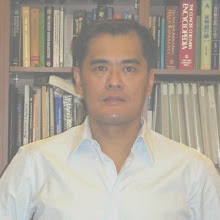Those could be tough and very much open-ended questions. Those with brave soul might take the challenge.
Currently the Ministry of Education in Taiwan, R.O.C. subsidize public schools in higher education (coined as National so-and-so Universities or Colleges) as well as private schools in the same system. Of course, the former gets much more than the latter. Students enrolled in the former end up with paying 1/3 to 1/4 of what they will pay for the latter. Of course, students enrolled in both groups keep complaining about the high cost of tuition and fees nowadays. The difference in tuition and fees is also consistent with the ranking of those schools.
1. Can we use the simplest supply and demand curves to argue that the tuition and fees, which are now regulated by the government (i.e., MOE) are too high or too low? Think about the price regulation and the consequence of lifting such regulation.
2. What if a significant number of universities suddenly drop out of the market? Will it cause a shape rise in tuition and fees? If so, shouldn't tax payers oppose to it?
3. What if the government stops subsidizing private school while deregulating private schools? Furthermore, what if the congress downsizes the Ministry of Education, save a handsome amount of money in running that bureau, and issue education vouchers such as the budget on education at large remains the same?
skip to main |
skip to sidebar

appreciate good economics and writing at the following sites
About Me

- jsw12011958
- Busy as I am, little accomplished as I was told, I am walking down this long and winding road for decades. I wish to spend time on building a small corner for recording my simple and sometimes naive ideas in economics, which has attracted me since the early 1980s. I admit, with regret, that my posting will be in English as well as Chinese.